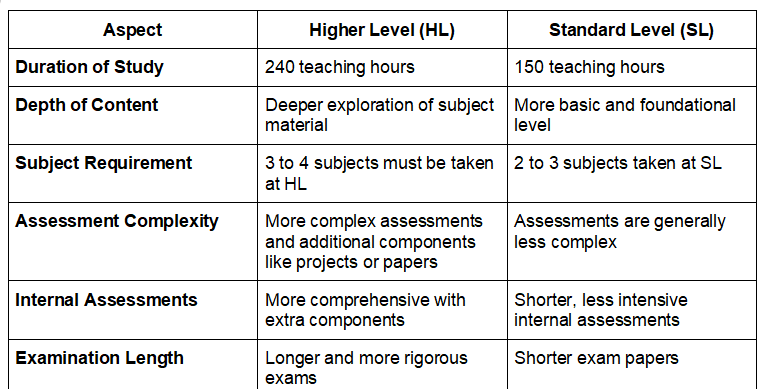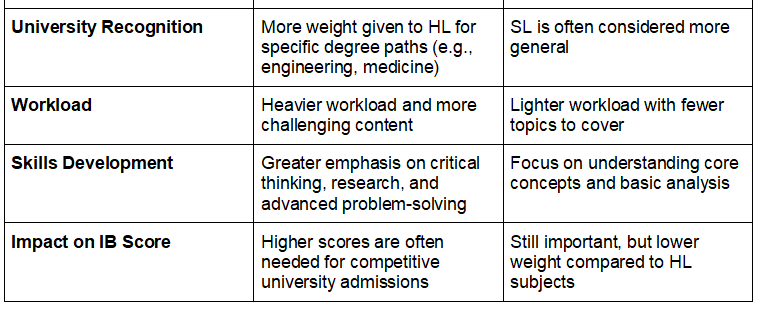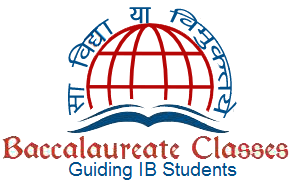OUR BLOG
Which subjects will push your limits? Secrets to Difficult and Manageable Subjects in IB
Do you wish to climb up the success ladder with your thinking and logistical abilities? Well, the IB Diploma Program, a comprehensive course, is the perfect choice for you. The two-year educational program for students encourages critical thinking, holistic development and practical knowledge. It is recognized on an international level and offers huge exposure to students from all age groups. Balancing difficult and easier subjects is crucial for success in the IB program, and the right IB Tuitions can make a significant difference. With expert guidance through IB Online Tutoring,students can develop a structured study plan that ensures they excel in challenging subjects while effectively managing lighter ones. Today, we’ll delve deeper into the IB subjects’ difficulty and share tips and strategies to manage their effectiveness.
Overview of the IB Curriculum
The International Baccalaureate Curriculum follows a worldwide standardized curriculum that permits transferring students to an international institute. Its well-defined standards are recognized by top universities across the globe. The IB curriculum is a two- and three-year authorization process and whose test scores ideally fall above the international or regional average. Its subject groups are as follows:
a. Language and Literature
b. Language Acquisition
c. Individuals and Societies
d. Sciences
e. Mathematics
f. Arts
Mathematics requires a solid foundation, making an experienced IB Math Tutor essential for mastering complex concepts. By leveraging personalized online sessions, students can optimize their learning strategies, improve time management, and achieve a well-rounded IB score. Additionally, students are expected to study three major areas: the Extended Essay (EE), Theory of Knowledge (TOK), and Creativity, Activity, Service (CAS).
IB Subjects Ranked by Difficulty
While ranking IB subjects by difficulty could depend on individual strengths, topics of interest and learning style, here’s an overview of IB subject selection based on the difficulty:
Most Difficult IB Subjects:
1. HL Mathematics (Analysis & Approaches)
2. Physics HL
3. Chemistry HL
4. History HL
5. Economics HL
Moderately Difficult IB Subjects:
1. Biology HL
2. English A: Literature HL
3. Visual Arts HL
4. Global Politics HL
5. Business Management HL
Less Difficult IB Subjects:
1. Environmental Systems and Societies SL
2. Math SL (Applications & Interpretations)
3. Language B (SL)
4. Film SL
5. Psychology SL
HL vs. SL (Higher Level vs. Standard Level)
The difference between HL and SL in IB boils down to its difficulty. Students are expected to opt for at least 3 to 4 subjects from HL. While SL focuses on theoretical knowledge, HL focuses on the “how” and “why.” The IB tutor of Baccalaureate Classes stays to clear all types of confusion regarding the curriculum and to give strength every student they are looking for.
Let us understand this in detail:


Choosing HL or SL can be difficult, but understanding its difference will definitely help in the decision-making process. Focusing on your individual strengths and how they align with your academic goals is the key to selecting the IB subjects and for immense support Baccalaureate Classes Provide the best IB Tuition to reach the target of marks.
Tips for Success in Hardest IB Subjects
The scoring for subjects in IB is weighed on a scale of 1 to 7, with 7 being the highest possible score. This scoring is used for both Higher Level (HL) and Standard Level (SL) subjects. The final scores depend on many factors, such as assessments (IAs), external exams, and coursework. Usually, IB students aim for a maximum of 42 points, i.e., 7 points per subject in six subjects (three HL and three SL).
Below we have listed a few IB success tips from our ib online tutoring services that’ll help you successfully score a 7 in the hardest IB subjects:
1. Understand the Criteria: Make sure you are familiar with the assessment criteria and rubrics for each subject. Take out time to study what is required for top marks in internal assessments (IAs) and exams.
2. Master the Syllabus: Thoroughly study and understand the syllabus. Focus on key concepts and topics outlined in the course guide.
3. Practice Regularly: Engage in regular practice, including past papers and exam-style questions. This will help you understand the exam format and improve your answering techniques.
4. Develop Strong Study Habits: Create a study routine that allows ample time for each subject. Implement study techniques such as summarizing, questioning, and self-testing.
5. Seek Feedback: Ask for feedback from teachers on your assignments and exams. This will help you improve and refine your work.
6. Stay Organized: Keep your notes, assignments, and study materials well-organized. This will help you quickly access information when revising.
7. Manage Time Effectively: Practice time management to ensure you can answer all parts of the question within the allotted time.
Both hardest and easiest IB subjects are necessary when it comes to the holistic development of a student. However, college admissions officers will particularly ensure whether or not the HL classes you signed up for align with your chosen major.
FAQs
1. How many HL and SL subjects do I need to take for the IB Diploma?
Students need to take 3 Higher Level (HL) subjects and 3 Standard Level (SL) subjects. The HL subjects require more in-depth study compared to SL subjects.
2. Which are the easiest subjects in IB to get a 7?
Generally, students find subjects like Language B (a second language) or Environmental Systems and Societies (ESS) less challenging as compared to others. However, it mostly depends on your personal interests and aptitude.
3. Is Mathematics HL Hard in IB?
Mathematics HL is considered one of the more challenging courses in the IB curriculum. It covers advanced topics and requires a strong understanding of mathematical concepts and problem-solving skills. The IB subject difficulty level for mathematics can be high, but with diligent study and practice, it is manageable.
4. How does taking HL subjects affect my IB Diploma score?
HL subjects are weighted more heavily in the overall IB Diploma scoring. Each HL subject is worth 1.5 times more than an SL subject in terms of points.
5. Will universities view HL subjects differently from SL subjects?
Yes, universities often view HL subjects more favorably than SL subjects. In fact, opting for IB subjects difficulty can positively influence university admissions decisions, especially for competitive programs.

